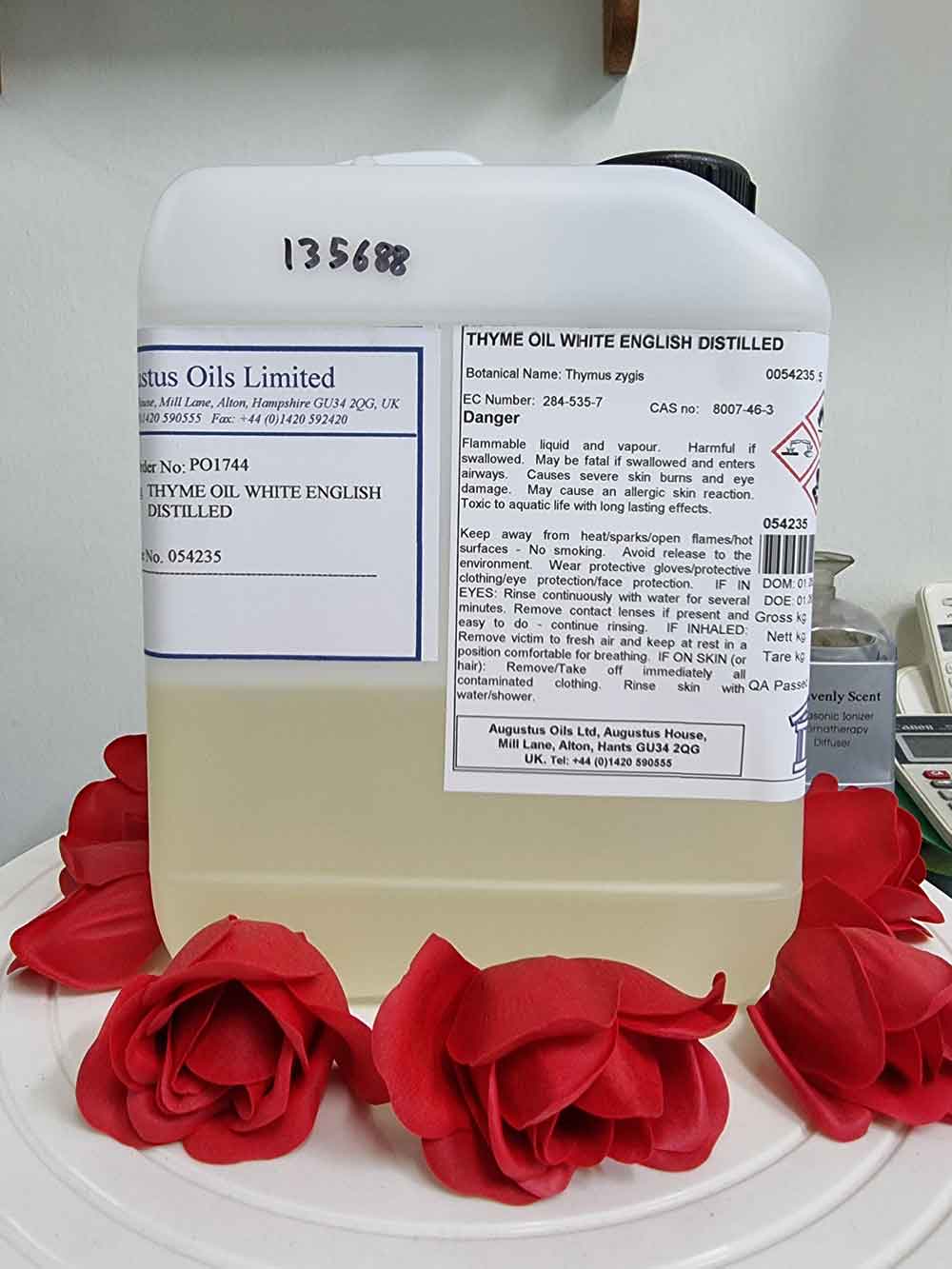What is the difference between Thymus vulgaris oil and Thymus zygis oil?
Learn about the difference between Thymus vulgaris oil and Thymus zygis oil.

The essential oils derived from Thymus vulgaris (common thyme) and Thymus zygis (Spanish thyme) have distinct differences in their chemical compositions, aromas, and uses. Here are the key differences:
Thymus vulgaris Oil (Thyme Oil)
- Source: Extracted from Thymus vulgaris.
- Chemical Composition: Rich in thymol, carvacrol, linalool, p-cymene, and borneol. Thymol is the dominant compound, giving it strong antimicrobial properties.
- Aroma: Strong, earthy, herbaceous, and slightly spicy.
- Uses:
- Medicinal: Widely used for its antiseptic, antimicrobial, and antifungal properties. Commonly used in treating respiratory conditions, skin infections, and as an immune booster.
- Aromatherapy: Used for its stimulating and invigorating effects. It is also believed to help with mental clarity and concentration.
- Cosmetic: Incorporated into skincare products for its antibacterial properties.
- Household: Used in natural cleaning products due to its disinfectant properties.
Thymus zygis Oil (Spanish Thyme Oil)
- Source: Extracted from Thymus zygis.
- Chemical Composition: Contains thymol and carvacrol but usually in different proportions compared to Thymus vulgaris. It may also have higher amounts of other compounds like geraniol and cineole.
- Aroma: Generally milder and less pungent than Thymus vulgaris oil, with a slightly different scent profile that can be more floral or sweet.
- Uses:
- Medicinal: Similar uses to Thymus vulgaris oil, but may be less potent due to lower concentrations of thymol and carvacrol.
- Aromatherapy: Used for its milder aroma, providing calming and balancing effects.
- Cosmetic: Used in skincare formulations, particularly for sensitive skin types due to its milder nature.
- Culinary: Occasionally used as a flavoring agent, although less common than Thymus vulgaris oil.
Key Differences
- Potency: Thymus vulgaris oil is generally more potent due to higher concentrations of thymol and carvacrol, making it more effective for strong antimicrobial and antiseptic applications.
- Aroma: Thymus vulgaris oil has a stronger, more pungent aroma, while Thymus zygis oil is milder and can have a sweeter or more floral scent.
- Uses: Both oils share similar uses, but Thymus vulgaris oil is preferred for more intensive therapeutic applications, while Thymus zygis oil is favored for its gentler nature and fragrance.
Our supply of Thyme Oil White is English Distilled meaning it is distilled in UK by our supplier. We normally keep stock of this white type with botanical name Thymus zygis (Spanish Thyme Oil). However, we do have Thymus vulgaris type of Thyme Oil which we are selling as Thyme Oil BPC 49.